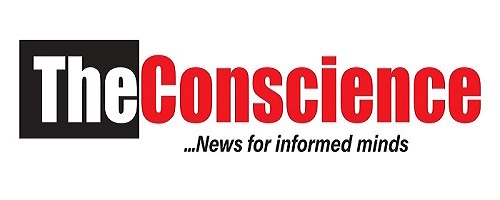Telecom Prices Set To Increase In Nigeria As Operators Face Rising Expenses
The telecommunications sector in Nigeria is poised for significant upgrades following the announcement by the Minister of Communications and Digital Economy, Dr. Bosun Tijani, that a tariff increase for telecom services will soon be approved.
While the exact rate of the increase has not been finalized, speculation suggests it will range between 40% and 50%.
This adjustment is expected to usher in improved service quality, including faster internet speeds, fewer dropped calls, and wider network coverage.
Telecom operators will finally have the resources to upgrade their infrastructure and meet the standards outlined in the Quality of Service (QoS) Regulations announced late 2024.
If a 40-50% tariff structure is approved, call rates could be reviewed from ₦11 to approximately ₦15.40 per minute, SMS charges from ₦4 to ₦5.60, and data plans such as the 1GB bundle from ₦1,000 to ₦1,400. If approved, this would mark the first major price adjustment in over a decade.
The telecom industry has struggled under immense financial and operational pressure for years, worsened by Nigeria’s challenging economic environment. Inflation has climbed to 34.6%, the highest in years, eroding consumer purchasing power while driving up costs for businesses.
Diesel prices, which account for nearly 30% of Telcos’ operating costs, have surged dramatically. Between January and August 2024, telecom operators spent approximately ₦71.3 billion monthly on diesel, totaling ₦570 billion within eight months. Airtel Nigeria revealed that diesel alone pushed its monthly fuel costs to ₦28 billion.
In addition to fuel expenses, Telcos face recurring infrastructure damage, such as fibre-optic cable cuts, which disrupt service and result in significant financial losses. On average, 43 cable cuts occur daily, with Airtel Nigeria reporting 7,742 incidents within just six months. These disruptions cost the industry an estimated ₦35.4 billion in 2023 alone.
Currency devaluation has further worsened the situation, making it more expensive to import critical components such as fibre-optic cables and batteries. These mounting operational costs have severely affected profitability. Airtel Nigeria’s second-quarter report for instance showed a $31 million profit after tax, but this was tempered by $80 million in foreign exchange and derivative losses while MTN Nigeria, the country’s biggest operator with almost 70 million subscribers, recorded a significant loss after tax of N514.9bn in 2024.
For Telcos, tariff adjustments have become a matter of survival. The industry has lobbied for tariff adjustments for years with the last major tariff increase coming 12 years ago, and the recent agreement by the Minister of Communications and Digital Economy suggests that the government recognizes the necessity of an increase, even if it is lower than the 100% initially requested by the operators.
The potential increase is also tied to strict regulatory expectations under the QoS Regulations 2024. Telecom operators are required to achieve a 50% improvement in call quality, internet speeds, and network availability, as well as halve the frequency of dropped calls. Failure to meet these targets will result in heavy fines, including ₦5 million for non-compliance and an additional ₦500,000 per day for unresolved issues.
Despite these challenges, the market has responded positively to the prospect of a tariff review. MTN Nigeria’s shares rose by 10% to ₦220 shortly after the minister’s statement, reflecting investor confidence that an increase would enable operators to stabilize operations and improve services.
For consumers, however, the higher tariffs will add to the growing cost of living. Many Nigerians rely on affordable telecom services for communication, education, and business activities. The expected increase will make these services more expensive, potentially widening the digital divide.
The success of this tariff adjustment will depend on how effectively telecom operators implement the promised improvements and how well these benefits are communicated to consumers. Nigerians will expect tangible results, including faster internet speeds, better network availability, and fewer dropped calls, to justify the higher costs.
The Nigerian Communications Commission (NCC) and Federal Competition and Consumer Protection Commission (FCCPC) must play a critical role in ensuring accountability. By monitoring compliance with the QoS Regulations and providing platforms for consumers to report poor service, these bodies can help ensure that the increased tariffs translate into real value for Nigerian consumers.
As Nigerians prepare for higher telecom costs, the focus must remain on ensuring that these increases lead to meaningful improvements in service delivery. Telecom operators must prioritize infrastructure investments, while regulators must enforce compliance to ensure consumers get value for their money. Only by striking this balance can the sector achieve the long-term sustainability it needs to thrive in an increasingly digital economy.
Ultimately, the tariff hike offers an opportunity to reset the expectations of both operators and consumers. While the cost of staying connected will rise, the promise of better service provides hope that the trade-off will be worth it. With careful implementation and accountability, the telecom sector could emerge stronger, more efficient, and better equipped to serve the needs of a growing digital economy.

























